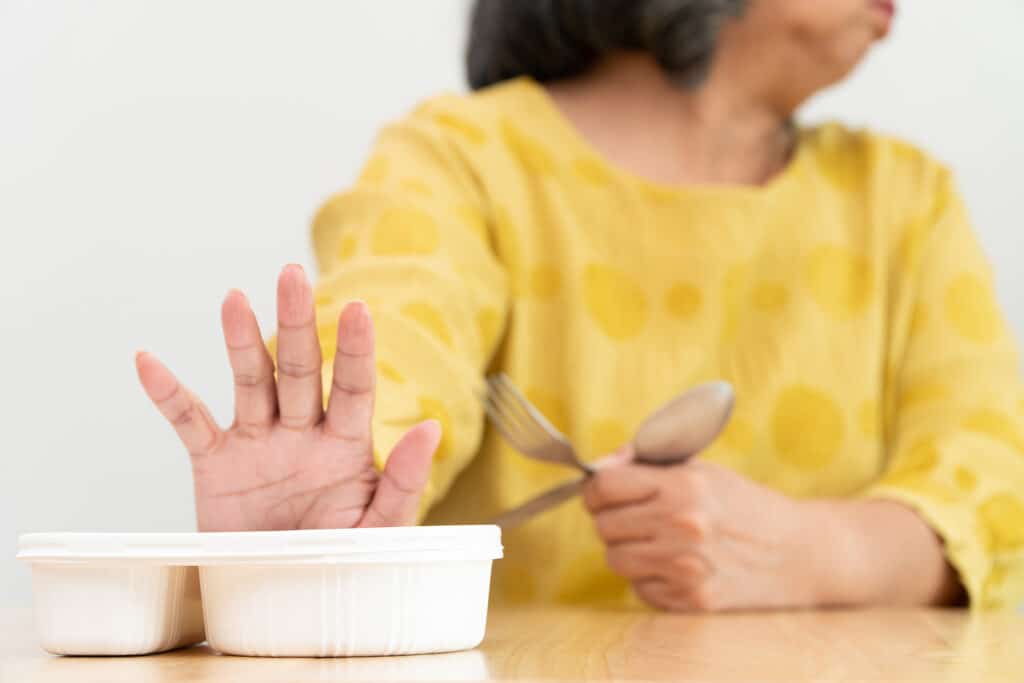Of all the senses, many might think losing the ability to taste is the least concerning. While losing sight or hearing is undoubtedly more serious, taste loss in elderly individuals can lead to dangerous consequences. With proper home care assistance, your loved one can receive the support they need to maintain a healthy diet and overall well-being, even if their sense of taste has diminished.
Table of Contents
ToggleHypogeusia (Loss of Taste) Symptoms
Hypogeusia doesn’t mean a complete loss of taste but rather a reduced ability to taste certain foods that your elderly loved one might notice. Many seniors experience some level of taste loss as they age, often for various reasons (which we’ll cover below).
If you’re concerned about changes in your loved one’s sense of taste, home care assistance can help identify and address these challenges. General symptoms that might indicate diminished taste include:
- A difficulty telling the difference between different taste profiles. He might be able to detect the difference between salty and spicy or sweet and sour.
- He may not be able to experience some taste profiles at all.
- He may notice a lack of smell in addition, since a big part of tasting food is directly related to being able to smell it as well.
Dangers Associated with the Loss of Taste
Taste plays an important role in protecting a person, and when your loved one experiences a reduced ability to taste, it can create challenges that may require home care assistance. Here are a few ways this issue can affect them:
- They may not recognize if food has gone bad. Without the ability to taste spoiled or expired food, such as sour milk or overly sweet, rotten fruit, your loved one might unknowingly eat something that could make them sick.
- They may oversalt or oversugar their meals. If they can’t taste the natural sweetness of a bowl of strawberries, they might add too much sugar. Similarly, they might rely on salt to enhance flavors, potentially leading to excessive sodium intake, which can be harmful—especially for those with health conditions requiring a low-sodium diet.
- Their eating habits might change. If eating becomes less enjoyable due to a lack of taste, they might not consume enough calories to maintain proper nutrition. On the other hand, some individuals may overeat while trying to chase flavors they can no longer detect. Both scenarios can negatively impact their health and well-being.
Home care assistance can provide valuable support in managing these challenges, from meal preparation tailored to their dietary needs to ensuring safe and balanced nutrition.
Changing How Food is Prepared Can Improve Taste
Your loved one may need to make some changes to his menu to help him increase the flavors of his food and enjoy it again. A home care assistance provider who helps with meals is a great way to help your loved one discover new spices and ways to prepare food to increase flavor profiles.
A home care assistance provider can help him shop for foods that are more flavor-packed as well as learn how to purchase spices that will increase flavor without increasing salt intake.
Once home, a home care assistance provider can assist your loved one in learning new ways to prepare foods that impart more flavor, such as grilling vegetables instead of boiling them.
Providing exceptional Home Care Assistance in Alexandria, VA, for seniors and families in the Northern Virginia area, including Arlington, Alexandria, McLean, Reston, Burke, Ashburn, Centreville, Springfield, Manassas, and Oakton. Call today to speak with our caring staff: (703) 272-8838.
- What Are Some Surprising Early Signs of Dementia? - May 22, 2025
- Training of the Month: Lymphedema - May 15, 2025
- Career and Opportunities Fair - May 15, 2025




